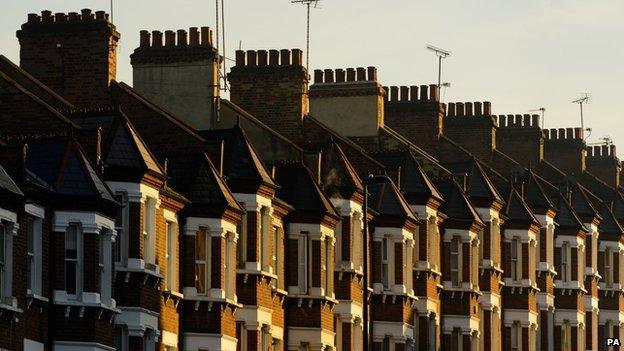Number in council tax arrears has rocketed, says Citizens Advice
- Published

Citizens Advice says council tax arrears are now "the number one debt problem" for people
The number of people seeking help for council tax arrears has "rocketed" to become the most common type of debt problem, a charity has said.
Between January and March 2014 Citizens Advice helped 27,000 people who had fallen into council tax arrears - a 17% increase on the same period in 2013.
It comes after council tax benefit changes were introduced in April 2013.
Local government minister Brandon Lewis said they formed a "vital part" of cutting the deficit.
As part of the government's welfare changes, council tax benefit was replaced by a council tax support scheme, run by local authorities instead of Whitehall.
The government also cut the budget for the scheme by 10%, or £414m. It said the benefit had been costing taxpayers £4bn a year.
Local authorities set up their own council tax support schemes using the reduced pot of money.
'Most in need'
However, Citizens Advice said, external the levels of support offered to people now varied "from one council to the next" and said council tax arrears were now "the number one debt problem" for people.
It said one in five people who had reported debt problems to the charity in 2014 had a council tax arrears issue and that the number of people struggling with council tax payments had "rocketed" since the changes were made.
The charity called for local councils to ensure council tax support schemes were focused on families and households who were "most in need".
"For some households council tax bills can be the tipping point that plunges them into debt," Gillian Guy, chief executive of Citizens Advice said.
"Consumer debts like credit cards and personal loans have traditionally been the most common debt problems that come through our doors, but since the end of council tax benefit we've seen council tax arrears problems go through the roof.
"As their budgets shrink local authorities are increasingly stretched, but they must ensure that the resources available for their local council tax support scheme are focused on those who are most in need."
'Stronger incentives'
However, local government minister Brandon Lewis said Downing Street had delivered an 11% real-terms cut to council tax bills.
He said the latest official annual figures showed arrears were falling and that collection rates across the country now stood at 97.4% - up by almost 4% on last year.
"Council tax benefit doubled under the last administration costing every household £180 a year so welfare reform is a vital part of reducing the inherited deficit.
"Locally-designed council tax support gives councils stronger incentives to cut fraud and support people to get back into work," he said.
Citizens Advice said 42% of people who asked it for help between January and March with council tax arrears were employed, compared with 28% who were unemployed and 30% not working due to ill health, caring responsibilities or retirement.
Earlier this year the debt charity StepChange said it had seen a 77% rise in the number of households needing advice on council tax arrears over the last year.
- Published14 April 2014

- Published13 March 2014
